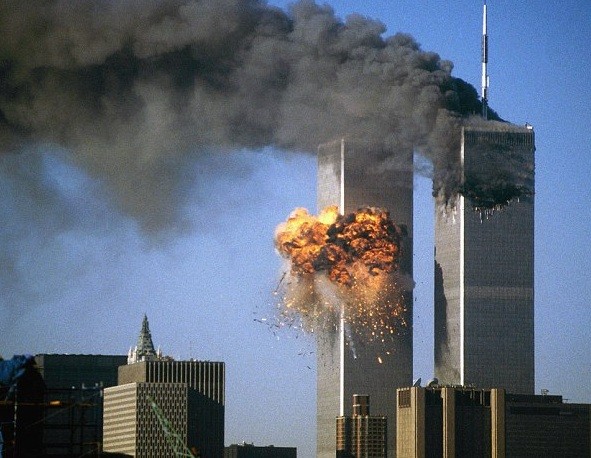Krauthammer as soothsayer.......
The stillborn legacy of Barack Obama
By
Charles Krauthammer October 6, 2016
Only amid the most bizarre, most tawdry, most addictive election campaign in memory could the real story of 2016 be so effectively obliterated, namely, that with just four months left in the Obama presidency, its two central pillars are collapsing before our eyes: domestically, its radical reform of American health care, a.k.a. Obamacare; and abroad, its radical reorientation of American foreign policy — disengagement marked by diplomacy and multilateralism.
Obamacare.
On Monday,
Bill Clinton called it “the craziest thing in the world.” And he was only talking about one crazy aspect of it — the impact on the consumer. Clinton pointed out that small business and hardworking employees (“out there busting it, sometimes 60 hours a week”) are “getting whacked . . . their premiums doubled and their coverage cut in half.”
This, as the program’s entire economic foundation is crumbling. More than half its nonprofit “co-ops” have gone bankrupt. Major health insurers like Aetna and UnitedHealthcare, having lost millions of dollars,
are withdrawing from the exchanges. In one-third of the U.S., exchanges will have only one insurance provider. Premiums and deductibles are exploding. Even the New York Times blares “Ailing Obama Health Care Act May Have to Change to Survive.”
Young people, refusing to pay disproportionately to subsidize older and sicker patients, are not signing up. As the risk pool becomes increasingly unbalanced, the death spiral accelerates. And the only way to save the system is with
massive infusions of tax money.
What to do? The Democrats will eventually push to junk Obamacare for a full-fledged, government-run, single-payer system. Republicans will seek to junk it for a more market-based pre-Obamacare-like alternative. Either way, the singular domestic achievement of this presidency dies.
The Obama Doctrine.
At the same time, Obama’s radically reoriented foreign policy is in ruins. His vision was to move away from a world where stability and “the success of liberty” (JFK,
inaugural address) were anchored by American power and move toward a world ruled by universal norms, mutual obligation, international law and multilateral institutions. No more cowboy adventures, no more unilateralism, no more Guantanamo. We would ascend to the higher moral plane of diplomacy. Clean hands, clear conscience, “smart power.”
This blessed vision has just died a terrible death in Aleppo. Its unraveling was predicted and predictable, though it took fully two terms to unfold. This policy of pristine — and preening — disengagement from the grubby imperatives of realpolitik yielded Crimea, the South China Sea, the rise of the Islamic State, the return of Iran. And now the horror and the shame of Aleppo.
After endless concessions to Russian demands meant to protect and preserve the genocidal regime of Syrian President Bashar al-Assad, last month we finally
capitulated to a deal in which we essentially joined Russia in that objective. But such is Vladimir Putin’s contempt for our president that he wouldn’t stop there.
He blatantly violated his own cease-fire with an air campaign of such spectacular savagery —
targeting hospitals, water-pumping stations and a
humanitarian aid convoy — that even Barack Obama and John Kerry could no longer deny that Putin is seeking not compromise but conquest. And is prepared to kill everyone in rebel-held Aleppo to achieve it. Obama, left with no options — and astonishingly, having prepared none — looks on.
At the outset of the war, we could have bombed Assad’s airfields and destroyed his aircraft, eliminating the regime’s major strategic advantage — control of the air.
Five years later, we can’t. Russia is there. Putin
has just installed S-300 antiaircraft missiles near Tartus. Yet, none of the rebels have any air assets. This is a warning and deterrent to the only power that could do something — the United States.
Obama did nothing before. He will surely do nothing now. For Americans, the shame is palpable. Russia’s annexation of Crimea may be an abstraction, but that
stunned, injured little boy in Aleppo is not.
“What is Aleppo?” famously asked Gary Johnson. Answer: the burial ground of the Obama fantasy of benign disengagement.
What’s left of the Obama legacy? Even Democrats are running away from Obamacare. And who will defend his foreign policy of lofty speech and cynical abdication?
In 2014, Obama said, “Make no mistake: [My] policies are on the ballot.” Democrats were crushed in that midterm election.
This time around,
Obama says, “My legacy’s on the ballot.” If the 2016 campaign hadn’t turned into a referendum on character — a battle fully personalized and ad hominem — the collapse of the Obama legacy would indeed be right now on the ballot. And his party would be 20 points behind.
https://www.washingtonpost.com/opin...c1bfe943b66_story.html?utm_term=.4befaa7b20b7









/about/north-korean-rocket-launch-58b8f52f3df78c353c45e7aa.png)
